하찮은 보통사람
그들은 당신을 '하찮은 인간' 또는 '보통 사람'이라고 부른다. 그리고 그들은 '보통 사람의 시대'인 새로운 시대가 시작되었다고 말한다. 하지만 누군가 당신을 그렇게 말한다고 해서 당신 자신이 '하찮은 인간'은 아닌 것이다. 하찮은 사람은 바로 강대국의 타락한 대통령들과 권력을 잡은 노동운동의 지도자들, 후회하는 자본가 가족의 아들들과, 정치가와 철학자들인 '그들'인 것이다. 그들은 당신에게 미래에 대한 환상은 주지만 당신의 과거에 대해서는 묻지 않는다.
당신은 두려운 과거를 이어가고 있는 계승자이다. 그리고 당신의 유산이란 당신이 손안에서 불타오르고 있는 다이아몬드인 것이다. 이것이 바로 내가 당신에게 말하고자 하는 것이다.
자신의 일을 하고 자신의 생활을 유지하려는 모든 의사와 구두 만드는 사람과 기계공과 교육자는 모두 자신의 단점을 분명하게 알고 있어야 한다. 당신은 이미 수십 년 동안 이 지상에서 중추적인 역할을 맡아서 일해 왔다. 인류 사회의 미래는 바로 당신의 생각과 행동들의 전개 방식에 달려 있다. 그러나 당신의 교사와 지배자들은 당신이 진정 어떻게 생각하고 존재해야 하는가에 대해 당신에게 말해주지 않는다. 그 어느 누구도 당신이 당신 자신의 운명을 잘 다룰 수 있게 할 수 있는 따끔한 충고의 말을 당신에게 감히 해주려고 하지 않는다. 당신은 오직 하나의 의식 안에서만 자유로울 수 있다. 그것은 당신 스스로 당신의 삶을 지배하고 있는 교육으로부터 벗어날 자유와 자아비판으로부터 벗어날 자유이다.
나는 한 번도 당신이 이런 식으로 불평하는 소리를 들어본 적이 없다. "너희들은 나를 내 자신 스스로와 이 세상에 대해 미래의 주인이 되도록 격려해왔다. 그렇지만 너희들은 어떻게 사람이 자신 스스로를 지배하는 주인이 되는 지에 대해 나에게 말해주지 않았고, 내가 저지른 생각과 행동의 잘못들에 대해서도 나에게 얘기해 주지 않았다"고 말이다.
당신은 밖으로 힘을 가진 자들이 '하찮은 인간들에 대해서' 힘을 행사하는 것을 당연하게 생각한다. 그리고 당신은 안으로 당신 스스로에게 침묵을 지키고 있다. 당신은 권력자들이나 사악한 의도를 가진 무능한 사람들에게 당신을 대표할 수 있는 권한을 준다. 그리고 오직 때가 너무 늦은 후에야 당신은 자신이 속고 있다는 것을 깨닫고 또 깨닫는다.
나는 당신을 이해한다. 당신이 가면이나 파티 초대장, 혹은 '인기'가 없이 육체적, 정신적으로 벌거벗고 있는 것을 수없이 많이 보아 왔기 때문이다. 신생아나 속바지 차림의 필드 마샬 처럼 벌거벗은 모습을. 당신은 내 앞에서 불평하고 울고 자신의 갈망에 대해 말하고, 사랑과 슬픔을 털어놓아 왔다. 나는 당신을 알고 이해한다. 나는 정말로 위대한 미래를 믿기 때문에 그대 '하찮은 인간'에게 당신의 현재 모습을 말해주려 한다. 위대한 미래는 의심할 것 없이 당신의 것이다.
그러니 우선 자신을 한번 바라보라! 진정한 모습 그대로의 자신을 보는 것이다. 당신의 지도자와 대표자들 그 누구도 감히 말해주지 않는 것에 귀를 기울이도록. 당신은 '하찮은 보통 사람'이다. 이 '하찮은'과 '보통'이란 말속에 담겨 있는 이중의 의미를 당신은 이해해야 한다.
달아나지 말라! 자신을 바라보는 용기를 가져야 한다!
"무슨 권리로 내게 말하는 거야?" 나는 당신의 불안한 표정에서 이러한 질문을 읽을 수가 있다. '하찮은 인간'이여, 나는 당신의 뻔뻔스러운 입에서 나오는 이 질문을 들을 수가 있다. '하찮은 인간이여', 당신은 스스로를 바라보는 것을 두려워하고, 비평을 두려워한다. 그들이 당신에게 약속하는 권한을 두려워하는 것과 마찬가지로. 당신은 이 권한을 사용하는 방법을 모를 것이다. 당신은 언젠가는 자신이 자아를 다르게 경험할 수 있다는 것을 감히 생각지 못한다. 위축되는 대신 자유롭고, 약삭빠른 대신 탁 터놓고, 밤도둑처럼 이아니라 솔직하게 사랑하면서. '하찮은 인간'이여, 당신은 자신을 무시하고 있다. 당신은 "내가 누구인데 나의 의견을 갖고, 나의 삶을 결정하고, 세상이 내 것이라고 선언한단 말인가?"라고 말한다. 당신의 말이 옳다.
당신이 누구인데 자신의 인생을 주장한단 말인가? 그러면 이제 당신이 누구인가를 내가 말해 주겠다.
당신은 오직 한 가지 점에서 정말로 위대한 사람과 다르다. 위대한 사람 역시 한때는 아주 하찮은 인간이었다. 그러나 그는 중요한 능력 하나를 개발했는데, 그것은 자신의 사고와 행동이 어디가 미숙한가를 볼 수 있게 된 것이다. 그는 자신에게 소중한 어떤 과업의 압력을 받으면서 더욱더 자신의 미숙함과 하찮음을 감지할 줄 알게 되었다. 위대한 사람은 자신이 언제 어떤 점에서 하찮은 인간인가를 안다.
그러나 하찮은 인간은 자신이 하찮다는 것을 알지 못하며 그것을 아는 것을 두려워한다. 그는 자신이 미숙함과 편협을 다른 사람들의 힘과 크기라는 환영으로 덮어 버린다. 그는 자기의 훌륭한 대장들을 자랑스러워하지만, 자신에 대해서는 긍지가 없다. 그는 자신이 갖지 못한 생각을 존경하나, 자신이 갖고 있는 생각은 존경하지 않는다. 그는 사물을 덜 이해할수록 더욱더 철저히 믿고, 가장 손쉽게 이해하는 사상들의 올바름은 믿지 않는다.
우선 내 자신 속에 있는 '하찮은 인간'으로부터 얘기를 열어 가기로 하자. 25년 동안 나는 말이나 글로써 이 세계에서 당신의 행복에 대한 권리를 주장해 왔다. 나는 자신에게 속한 것을 취하지 못하는 당신의 무능력을 비난해 왔다. 나는 파리와 비엔나 방책의 피비린내 나는 전투에서, 그리고 미국 해방이나 러시아혁명에서 획득한 것을 단단히 지키지 못하는 당신의 무능력을 비난해왔다. 당신의 파리는 쁘뗑과 라바예에서 끝났고, 비엔나는 히틀러에서, 러시아는 스탈린에서 끝났다. 그리고 당신의 미국은 3K단 체제에서 끝나 버렸다. 당신은 자신과 다른 사람들을 위해 자유를 지키는 방법보다는 자신의 자유를 획득하는 방법을 더 잘 알고 있었다. 나는 그것을 오랫동안 알아 왔다.
이해할 수 없었던 것은, 당신이 매번 어렵게 싸워 하나의 곤경에서 벗어났을 때마다 어째서 다시 더욱더 악화된 곤경에 빠져들었는가 하는 것이다. 이윽고 나는 서서히 당신을 이해하게 되면서 무엇이 당신을 노예로 만드는가를 알아냈다. 그것은 당신 자신 스스로가 노예 감시자라는 것이다. 당신 자신 외에 다른 사람은 아무도 당신의 노예 신분에 대한 책임을 지지 않는다. 다른 어느 누구도.
당신에게는 그것이 새로운 발견일 것이다.
당신을 해방시킨 자들은 당신에게 당신의 억압자들이 빌헬름이나 니콜라스, 교황 그레고리 28세, 모건, 크루프 또는 포드라고 말한다. 그리고 당신의 '해방자'들은 무솔리니, 나폴레옹, 히틀러, 스탈린이라고 불린다.
정말이지, 오직 자기 자신만이 스스로를 해방시킬 수 있다!
이 말은 나를 주저하게 한다. 나는 순수와 진실을 위한 투사가 되기 위해 싸운다. 그리고 나는 지금 그것이 당신에게 당신자신에 대한 진실을 말해 주는 문제가 되자 망설인다. 진실에 대한 당신과 당신의 태도가 두렵기 때문이다. 당신에 대한 진실을 말하는 것은 생명에 위험을 준다. 진실은 한편으로 생명을 구하지만 모든 패거리들의 전리품도 된다. 만일 그렇지 않다면 당신은 지금의 당신이 아니고 지금의 위치에 있지도 않을 것이다.
나의 지성은 내게 이렇게 말한다. "어떤 희생을 치르더라도 진실을 말하라"고. 내 안에 있는 '하찮은 인간'은 말한다. "자신을 '하찮은 인간'에게 노출시키고 그의 처분에 맡기는 것은 어리석다." '하찮은 인간'은 자신에 대한 진실을 듣고 싶어 하지 않는다. 그는 자신이 져야만 하는 커다란 책임을 원하지 않는다. 그는 '하찮은 인간'으로 남아 있기를 원하거나, '하찮은 위대한 사람'이 되고 싶어 한다. 그는 부자가, 당 지도자, 또는 군대의 지휘자나, 악덕 폐지를 위한 사회 집단의 간사가 되고 싶어 한다. 그러나 그는 자신의 일, 식량, 주택, 교통, 교육, 연구, 행정 또는 무엇이 되던 그것에 대한 책임을 떠맡고 싶어 하지 않는다.
내 안의 '하찮은 인간'은 말한다. "너는 독일, 오스트리아, 스칸디나비아, 영국, 미국, 팔레스타인 등지에서 알려진 훌륭한 사람이 되었다. 공산주의자들은 당신과 싸운다. '문화적 가치의 구세주들'은 당신을 증오한다. 학생들은 당신을 사랑한다. 옛 환자들은 당신을 존경한다. 감정적으로 남을 괴롭히기 좋아하는 사람에게 시달리는 이들은 당신을 따른다. 당신은 삶의 불행과 '하찮은 인간'의 불행에 대해 열두 권의 책과 백 오십 개의 논문을 썼다. 당신의 조사 결과와 이론들은 수많은 대학에서 가르쳐지고 있는 중이고, 다른 훌륭하고 고독한 사람들은 당신이 대단히 훌륭한 사람이라고 말한다. 당신은 우주의 생명 에너지와 생존 기능의 법칙을 발견했기 때문에 과학의 역사에서 지성의 대가들과 비유된다. 당신은 암을 이해할 수 있게 했다. 당신은 진실을 말하기 때문에 여러 나라를 여행했다. 이제는 느긋해지도록. 노력의 결실과 명성을 즐겨라. 수년 후면 당신의 이름이 도처에서 들릴 것이다. 당신은 충분히 해냈다. 이제는 그만두고, 서재로 물러나 자연의 기능 법칙을 연구하라!"
'하찮은 인간'이여, 당신을 두려워하는 내 안의 '하찮은 인간'은 이렇게 말한다. 오랫동안 나는 당신과 가깝게 교제해 왔다. 내 자신의 경험으로 당신의 삶을 알고 있기 때문이고, 당신을 돕고 싶어 했기 때문이었다. 나는 정말로 당신을 도왔고, 종종 당신의 두 눈에 어린 눈물로 당신이 내 도움을 원한다는 것을 충분히 알고 있었으므로 그 관계를 유지했다. 아주 서서히 나는 당신이 기꺼이 내 도움을 받아들이지만 그것을 지킬 능력은 없다는 것을 알기 시작했다. 나는 분명 그것을 지켰고 당신을 대신해서 당신을 위해 열심히 싸웠다. 그때 당신의 지도자들이 나타나 내 일을 산산이 부수어 버렸다. 당신은 여전히 입을 다문 채로 그들을 따랐다. 이제 나는 당신의 지도자나 또는 희생자로서 소멸하지 않고 어떻게 당신을 도울 수 있는가를 배우기 위하여 그 관계를 유지했다.
내 안의 '하찮은 인간'은 당신을 설득하고 '구하기'를 원한다. 그는 당신으로부터 '고등 수학'에 대한 존경과 똑같은 존경심을 갖고 평가되기를 원한다. 그것은 당신이 그게 대체 무엇인가를 전혀 모르기 때문이다. 당신은 덜 이해할수록 좀 더 기꺼이 존경을 보내게 되어 있다. 당신은 니체보다 히틀러를, 페스탈로찌보다는 나폴레옹을 더 잘 알고 있다. 왕은 지그문트 프로이드보다 당신에게 더 많은 의미를 갖는다.
내 안의 '하찮은 인간'은 지도자의 방법으로 평범하게 행해지는 것처럼 당신을 설득하고 싶어 한다. 나는 당신을 '자유'로 이끌 사람이 바로 내 안의 '하찮은 인간'일 때에 당신이 두려워진다. 당신은 내 안에서 당신 스스로를, 그리고 당신 안에서 나를 발견할지 모르며, 겁이 나서 내 안에 있는 당신을 죽일 지도 모른다. 이러한 이유에서 나는 누군가의 노예가 될 수 있는 당신의 자유를 위해 기꺼이 죽기를 그만두었다.
나는 당신이 방금 한 내 말을 이해할 수 없다는 것을 안다. '누군가의 노예가 될 수 있는 자유'는 단순한 문제가 아니다. 더 이상 한 개인인 주인의 노예가 되지 않고, 누군가의 노예가 되기 위해서는 우선 이 개인 억압자, 이를테면 전제군주를 제거해야 한다. 사람은 자유와 혁명적인 동기에 대한 높은 이상이 없이는 이 정치적인 살인을 저지를 수 없다.
하찮은 위대한 사람
곧 사람은 예수나 마르크스, 링컨, 또는 레닌 같은 진정으로 위대한 사람의 지도하에 혁명적인 자유당을 창설한다. 진정으로 위대한 사람은 당신의 자유를 몹시 심각하게 받아들인다. 그는 실질적으로 그것을 확립하기 위해 많은 하찮은 인간들과, 협력자들과, 심부름꾼들로 둘러싸여야 한다. 혼자서는 거대한 일을 할 수 없기 때문이다. 더욱이 당신은 그를 이해하지 못할 것이고, 쓰러진 채 방치되게 할 것이다. 만일 그가 자신을 '하찮은 위대한 사람'들로 둘러싸이게 했다면 말이다.
많은 '하찮은 위대한 사람'들로 둘러싸인 그는 당신이나, 한 조각의 진실, 또는 새롭고 더 좋은 믿음을 위해 권력을 정복한다. 그는 복음과 자유의 법령 등등을 쓰고 당신의 도움과 진심을 기대한다. 그는 사회적인 곤경으로부터 당신을 끌어낸다. 그 진정으로 위대한 사람은 당신과 당신의 일상적인 소음과는 멀지만 그래도 당신의 생활과 밀접한 관계가 있는, 깊은 지성적인 외로움 속에서만 이룰 수 있는 위대함을 서서히 희생해야 한다. 많은 '하찮은 위대한 사람들'을 한데 모으고 당신의 신뢰를 잃지 않기 위하여. 그는 당신이 그를 접근하기 어려운 신으로 변화시키는 것을 견디어야 한다. 당신을 이끌 수 있기 위하여.
만일 그가 여전히 결혼증명서가 없을 지라도 한 여자를 사랑할 수 있는 단순한 남자로 남아 있었다면 그를 신뢰하지 않을 것이다. 이처럼 당신은 직접 자신의 새로운 주인을 만들어낸다. 새로운 주인의 역할로 승격된 그 위대한 사람은 자신의 위대함을 상실한다. 이 위대함은 솔직함과 단순함, 용기, 그리고 삶과의 진정한 접촉으로 이루어져 있기 때문이다.
위대한 사람으로부터 위대함을 얻은 '하찮은 위대한 사람'들은 재정, 외교, 정부, 과학, 예술 등에서 높은 자리를 떠맡고, 당신은 여전히 계속되어 온 곤경 속에 남아 있다. 당신은 '사회주의의 미래'나 '(나찌) 제3제국'을 위하여 계속 누더기 옷을 입는다. 당신은 계속 그을음으로 뒤덮인 벽과 초가지붕으로 된 불결한 집에서 산다. 그러나 당신은 문화의 궁전을 자랑스러워한다. 당신은 새로운 주인의 몰락과 다음 전쟁이 있을 때까지는--자신이 지배하는 환상에 만족한다.
먼 나라들에서는 하찮은 인간들이 부지런히 누군가의 노예가 되려는 당신의 갈망을 연구해서 약간의 지적인 노력으로 하찮은 위대한 사람이 되는 방법을 배워 왔다. 그 하찮은 위대한 사람들은 대저택과 궁전이 아니라 당신과 같은 계급 출신이다. 그들은 당신처럼 굶주렸고 고통을 받았다. 그들은 주인을 바꾸는 과정을 단축시킨다. 그들은 당신의 자유를 위한 희생과 행복을 위한 개인적 희생, 심지어는 당신의 자유에 대한 수백 년의 힘든 지적인 노력까지도 당신의 새로운 노예 상태를 위해서는 너무나도 엄청난 대가임을 배웠다.
진정으로 위대한 자유사상가들이 백 년 동안 공들여 만들고 고통을 받은 것이 5년도 채 못 되는 동안에 파괴될 수 있다. 그러므로 당신과 같은 계급출신의 하찮은 인간들은 그 과정을 단축시킨다. 좀 더 공개적이고 좀 더 야만적으로. 그 이상으로, 또 그들에게 있어서 당신과 당신의 삶, 당신의 가족과 자녀들은 전혀 문제가 되지 않는다.
그들은 당신에게 당신은 어리석고 비굴하며 누구나 당신을 마음대로 할 수 있다고 분명히 말해 준다. 그들은 당신에게 개인의 자유가 아니라 국가의 자유를 약속한다. 그들은 당신에게 인간적인 자기 확신이 아니라 국가에 대한 경의를, 개인의 위대함이 아니라 국가의 위대함을 약속한다. '개인의 자유'와 '개인의 위대함'은 당신에게 아무것도 아니고 막연한 개념이다. 한편, '국가의 자유'와 '국가의 이해'는 개가 뼈다귀를 대하듯 군침이 나게 하므로, 당신은 큰 소리로 그것들을 환호하며 맞이한다. 이 하찮은 인간들은 아무도 예수나, 칼 마르크스 또는 링컨처럼 진정한 자유를 위해 희생을 치르지 않는다.
하찮은 인간이여, 그들은 당신이 스스로를 무시하기 때문에 당신을 사랑하지 않고 무시한다. 그들은 록펠러 같은 사람이나 토리 당원들이 당신을 아는 것보다 당신을 훨씬 더 잘 알고 있다. 그들은 오직 당신만이 알고 있어야 할 당신의 최대 약점을 알고 있다. 그들은 어떤 상징에 당신을 희생시킨다. 당신은 스스로 그들을 당신을 지배하는 권력으로 인도한다. 당신의 주인들이 모든 가면을 벗어 버렸음에도 불구하고.
아니, 오히려 그 사실 때문에 당신 자신에 의해 받들어 모셔졌고 키워진다. 참으로 그들은 당신에게 분명히 말한다. "당신은 어떤 책임도 없는 열등한 존재이고, 여전히 그렇게 남아 있을 것이다"라고. 그런데도 당신은 그들을 '구세주'와 '새로운 해방자'라고 부르면서, 큰 소리로 "만세, 만세!"를 외친다.
하찮은 인간이여, 이것이 바로 내가 당신을 끔찍이 두려워하는 이유이다. 왜냐하면 인류의 운명이 당신에게 달려 있기 때문이다. 당신이 자기 자신에게서 도망칠 수 없는 것과 마찬가지로 나도 전혀 달아날 곳이 없기 때문에 당신이 두렵다.
하찮은 인간이여, 당신은 몹시 병들었다. 물론, 당신의 잘못은 아니다. 그러나 스스로 이 병에서 벗어나는 것은 당신의 책임이다. 만일 억압을 참지 않았거나, 그것을 적극적으로 지지하지 않았다면, 당신은 훨씬 전에 압제자들을 떨쳐버렸을 것이다. 당신이 만일 실체의 일상적인 삶에서 한 조각이나마 자존심을 갖고 있기만 했더라면, 그리고 마음 속 깊이 당신이 없으면 인생이 한 시간도 더 지속되지 않으리라는 것을 알았더라면, 세상의 어떤 경찰력도 당신을 억압할 만큼 강력하지 못했을 것이다.
당신의 '해방자'가 이와 같은 것을 당신에게 말해 주었던가? 아니다. 그는 당신을 '세계 무산계급'이라고 부르지만 오직 당신만이 자신의 인생에 책임이 있다는 것은 말해 주지 않는다. (대신에 그는 당신이 '조국의 명예'에 책임이 있다고 말한다)
당신은 하찮은 사람들을 자신의 박해자로 만들었다. 진정으로 위대한 사람들을 순교자로 만들어 십자가에 못 박고 살해하고 굶주리게 했으며, 당신을 위한 그들의 노고를 전혀 생각하지 않았다. 당신이 당신의 삶에서 어떤 성취를 하던 그것은 그들의 덕을 입은 것이라는 사실을 깨달아야 한다.
당신은 '당신을 신뢰하기 전에 당신의 생활 철학을 알고 싶다'고 말한다. 내 생활 철학을 들으면 당신은 지방검사, '비 미국적 행동 추방위원회', 에프 비 아이, 소련의 국가안보위원회, '선정적 신문', 3K단, 또는 '세계 무산계급 지도자들'에게로 도망칠 것이다. 혹은 마침내는 무턱대고 달아날 것이다. 나는 빨갱이도, 흑인도, 백인도, 황색인도 아니다. 나는 기독교인, 유대인, 또는 회교도, 모르몬교도, 일부다처주의자, 동성연애자, 무정부주의자, 의화단이 아니다. 나는 우연히 결혼증명서를 갖고 있어서라거나 혹은 성적으로 굶주려서가 아니라, 사랑하고 갈망하기 때문에 내 아내를 포옹한다. 나는 내 아이들을 때리지 않고, 낚시를 하지 않으며, 사슴이나 토끼를 총으로 쏘아 잡지 않는다. 그러나 나는 우수한 사수이고 과녁 복판을 맞히기를 좋아한다. 나는 브리지 놀이를 하지 않고, 내 이론을 전파하기 위해 파티를 열지 않는다. 만일 내 가르침이 옳다면 저절로 전해질 것이다.
나는 나보다 더 정통해 있지 않는 한, 어떤 위생국 관리에게도 내 일에 대해 진술하지 않는다. 그리고 누가 내 발견에 대한 지식과 복잡함에 정통했는가는 내가 결정한다. 나는 이치에 닿을 때는 모든 법을 엄격하게 지킨다. 그러나 그것이 시대에 뒤떨어지거나 무분별할 때는 싸운다. (하찮은 인간이여, 지방검사에게로 도망치지 말도록. 만일 그가 존경할 만한 사람이면 그 역시 똑같이 할 테니까 말이다)
나는 어린이들과 젊은이들이 사랑의 육체적인 행복을 경험하고 위험이 없이 즐기기를 원한다. 나는 말 그대로 선하고 진정한 의미에서 종교적이기 위하여 자신의 애정 생활을 망치고 몸과 마음이 경직돼 움츠러들어야 한다고는 믿지 않는다.
나는 소위 '신'이 실제로 존재한다는 것은 알지만 당신이 생각하는 것과는 다르다. 나는 신이 우주의 근본적인 에너지이고, 당신의 몸속에 있는 사랑이며, 당신과 당신 주위의 본질에 대한 느낌이고 성질이라고 본다.
나는 환자나 어린이를 위한 내 의료와 교육 활동에 어떤 얄팍한 구실로든 간섭하려는 자는 누구든 쫓아 보낼 것이다. 어떤 공개 법정에서도 나는 그에게 이후 내내 부끄러워하지 않고는 대답할 수 없는 어떤 지극히 단순하고 분명한 질문을 할 것이다. 정말로 인간이 어떤 존재이며, 얼마나 대단한 존재인지를 알기 때문이다. 그리고 나는 일에 대한 의견이 아니라, 세상을 다스리는 일을 원하는 '일하는 사람'이기 때문이다. 나는 나의 의견을 갖고 있다. 나는 늘 어떤 도구처럼 사용하면서 사용 후에는 깨끗이 간직하는 거짓말과 진실을 구별할 수 있다.
하찮은 인간이여, 항상 그래왔던 것은 아니지만, 나는 당신을 아주 깊이 두려워한다. 나 자신도 수억만의 하찮은 인간들 가운데 하나였다. 그런데 나는 자연과학자가 되었고 정신병의사가 되었으며, 당신이 얼마나 병들어 있고 그 병이 얼마나 위험한가를 볼 수 있게 되었다. 나는 그것이 어떤 외부의 압력이 없다 해도 시시때때로 당신을 억압하는, 외부의 힘이 아니라 당신 자신의 정서적인 병이라는 사실을 알 수 있게 되었다. 마음이 살아 있고 건강했더라면 당신은 오래 전에 압제자들에게 이겼을 것이다. 당신의 박해자들이 과거에는 사회의 상부 계층 출신이었으나, 이제는 당신과 같은 계급 출신이다.
하찮은 인간이여, 그들은 당신보다 훨씬 더 하찮다. 왜냐하면, 그들은 경험적으로 당신의 불행을 알고 있으므로 당신을 더욱더 지독하게 억압하려면 이 지식을 이용한 아주 약간의 하찮음만 있으면 되기 때문이다. 당신에게는 진정으로 위대한 인간을 알아보는 감각기관이 없다. 당신을 위한 그의 존재와, 고통과, 갈구와, 분노와, 투쟁방법이 당신에게는 낯설다. 당신을 억압하거나 이용하기는커녕 오히려 진정으로 당신이 자유롭고 참되며 정직하기를 원하는 사람들이 있다는 것을 이해할 능력이 당신에게는 없다. 당신은 그러한 사람들을 좋아하지 않는다. 당신의 본질과는 다르기 때문이다. 그들은 단순하고 솔직하다. 그들의 진실은 당신의 책략과 같다. 그들은 비웃는 마음으로서가 아니라 인간의 운명에 아픔을 느끼면서 당신을 꿰뚫어 본다. 그러나 당신은 간파되는 기분으로 느낀다.
하찮은 인간이여, 당신은 오로지 많은 다른 하찮은 인간들에 의해 위대하다고 말해질 때만, 이 위대한 사람들을 환호하며 맞이한다. 당신은 위대한 사람들과, 그들의 생명에 대한 친밀함과, 인생에 대한 사랑을 두려워한다. 위대한 인간은 당신을 단순히 살아 있는 동물이며 살아 있는 존재로서 사랑한다. 그는 당신이 수천 년 동안 고통을 받아 왔던 것처럼 고통 받는 것을 보고 싶어 하지 않는다. 그는 당신을 운반이나 노역에 사용하는 소나 말 따위의 동물로 보고 싶어 하지 않는다. 그들은 인생을 사랑하고 당신이 고통과 치욕으로부터 해방되는 것을 보고 싶어 하기 때문이다.
당신은 진정으로 위대한 인간들로 하여금 당신을 무시하게 만들뿐만 아니라, 당신과 당신의 하찮음 때문에 고통 받고 물러나면서 당신을 피하게 한다. 최악의 경우에는 당신을 불쌍하게 여기기 시작하는 경지로까지 몰아간다.
하찮은 인간이여, 당신이 이를테면 롬 브루소 같은 정신병의사라면, 위대한 인간을 기대에 부응치도 못하고 정신병자가 되지도 못한 범죄자인 양 짓밟을 것이다. 왜냐하면 위대한 인간은 당신과 달리 돈을 모으는 것, 사회적으로 적절한 딸의 결혼, 정치 경력, 학위 또는 노벨상을 인생의 목표로 삼지 않기 때문이다. 당신은 이러한 이유에서 그가 당신과 같지 않기에, 그를 '천재'나 '괴짜' 라고 부른다. 반면에 그는 기꺼이 자신이 천재가 아니라 단순히 살아 있는 존재라고 말한다. 당신은 그가 당신의 공허하게 재잘거리는 사교 '파티들'보다, 사고하는 공부나 일하는 연구소를 더 좋아하기 때문에 '비사교적'으로 단정한다. 당신은 그가 당신처럼 주식이나 채권을 사는 대신, 과학적인 연구에 돈을 쓰기 때문에 미쳤다고 생각한다.
하찮은 인간이여, 끝없이 타락한 당신은 뻔뻔스럽게도 '정상'의 원형이고 '정상인'이라고 스스로 믿는 당신과 비교하여 단순하고 솔직한 사람을 '비정상적'이라고 생각한다. 당신은 당신의 인색한 자로 그를 재면서 그가 당신이 생각하는 정상의 요구에 미치지 못함을 발견한다.
하찮은 인간이여, 당신은 당신에 대한 사랑으로 가득 차 기꺼이 도울 준비가 되어 있는 그를 사회생활에서 몰아내는 것이 바로 자신이라는 것을 알 수가 없다. 선술집에서건 궁전에서건 당신 자신이 그를 견딜 수 없도록 만들었음에도 불구하고, 그가 수십 년 동안 가슴이 찢어 지는듯한 고통을 추구하고 있는듯하게 만든 것은 누구인가?
그것은 바로 10년의 사회발전 후까지도 살아남지 못하는 '요지부동의 원리'와, 옳지 못한 생각과, 편협과, 무책임을 지닌 당신이다. 제1차 세계대전과 제2차 세계대전 사이의 수 년 동안에 당신이 옳다고 맹세한 모든 것들을 좀 생각해 보라. 당신은 그들 중에서 얼마나 잘못됐다고 깨달았으며 얼마나 철회했는가? 하찮은 인간이여, 전혀 없다.
진정으로 위대한 인간은 신중하게 생각한다. 그러나 일단 중요한 아이디어를 파악하면 장기적으로 생각한다. 하찮은 인간이여, 위대한 인간의 생각이 옳고 영속적이며, 당신의 생각은 하찮고 덧없을 때에 그를 세상에서 버림받게 하는 것은 바로 당신이다. 당신은 그를 세상에서 버림받은 사람으로 만들뿐만 아니라, 그에게 지독한 고독의 씨앗을 심는다. 위대한 행위를 낳는 고독의 씨앗이 아니라, 당신으로부터의 오해와 학대에 대한 두려움의 씨앗을. 왜냐하면 당신이 '국민'이고 '여론'이며 '사회 양심'이기 때문이다.
하찮은 인간이여, 한번이라도 솔직하게 이것에 연루된 엄청난 책임을 생각해 보았는가? 정말로 장기적이고 사회적인 사건이나 자연, 또는 훌륭한 인간다운 행위--이를테면 예수라는 이--나 견지에서 당신이 옳게 생각하고 있는 지의 여부를 스스로에게 물어보았는가? 아니다. 당신은 자신의 생각이 잘못인가를 자문해 보기는커녕 이웃이 그것에 대해 어떻게 말할 것인가, 혹은 정직하려면 아마도 돈이 들지 않을까 하는 것을 자신에게 물어보았을 따름이다.
하찮은 인간이여, 바로 이것이 당신이 스스로에게 질문했던 것이다. 당신은 이처럼 위대한 인간을 고독으로 몰아넣고도 당신이 그에게 한 짓을 잊어버렸다. 당신이 한 일이라고는 오직 이런저런 실없는 소리를 지껄이고 하찮고 비열한 짓을 저지르고 깊은 상처를 지운 것뿐이다.
당신은 잊는다. 그러나 위대한 인간들은 잊을 뿐만 아니라, 복수를 하지도 않는다. 대신에, 그들은 당신이 그처럼 비열하게 행동하는 이유를 이해하기 위해 애쓴다. 그것이 그들의 천성이다. 나는 이 또한 당신의 생각이나 느낌과는 다르다는 것을 안다. 그러나 내 말을 믿도록, 만일 당신이 백 번 수천 번 백만 번 고통을 가하고, 치유할 수 없는 상처를 입히고도 곧 스스로 한 짓을 잊어버린다 해도 위대한 인간은 당신의 나쁜 짓 때문에 당신을 대신해서 고통의 굴레를 뒤집어쓴다. 그 나쁜 짓들이 훌륭해서가 아니라 하찮기 때문에. 그는 무엇이 당신을 움직여서 그 같은 짓을 하게 하는지 알고 싶어 한다. 실망시켰다는 이유로 결혼 상대의 명예를 손상시키고, 부도덕한 이웃을 만족시켜 주지 않는다고 자녀를 괴롭히고, 친절한 사람을 냉소하며 바라보면서도 이용하고, '자신에게 주어진 것은 날름 받아들이고 요구되는 곳에는 주지만, 결코 사랑이 주어진 곳에는 주지 않고, 쓰러지거나 쓰려지려는 친구를 또 한 번 발로 차고', 진실이 필요한 곳에서 거짓말을 하고, 거짓을 박해하기보다는 진실을 항상 박해하는 짓들을.
하찮은 인간이여, 당신은 언제나 고발자의 편에 선다. 하찮은 인간이여, 위대한 인간은 당신의 호의와 쓸모없는 우정을 얻기 위하여 당신에게 적응하고, 당신이 하는 방식으로 말하고, 당신의 가치로 자신을 치장해야만 한다. 그러나 그가 만일 당신의 가치와 언어와 우정을 지니고 있다면, 더 이상은 위대하지도 진실하지도 단순하지도 않을 것이다. 그 증거로 당신이 원하는 대로 말하는 당신의 친구들은 결코 위대한 인간이 아니었다.
당신은 친구가 무언가 위대한 일을 성취할 수 있다는 사실을 믿지 않는다. 당신은 은밀히 자신을 무시한다. 특별히 자신의 위엄을 한껏 과시할 때조차도. 당신은 스스로를 무시하기에 당신의 친구를 존경할 수가 없다. 당신은 당신과 같은 테이블에 앉거나 같은 집에 사는 누군가가 무엇이든 위대한 일을 달성할 수 있다는 것을 믿지 않는다. 하찮은 인간이여, 당신과 가까이에 있으면 생각하기가 힘들다. 누구든 오로지 당신에 대해 생각할 수는 있지만 당신과 함께 생각할 수는 없다. 당신은 어떤 훌륭하고 멋진 생각이라도 숨통을 끊어 놓기 때문이다.
당신은 어머니로서 세상을 탐험하는 자식에게 말한다. "그건 어린이들이 할 일이 아니야." 당신은 생물학 교수로서 말한다. "그건 예의바른 학생들이 할 짓이 아니야." 교사로서 당신은 말한다. "어린이들은 보기 위한 것이지 얘기를 듣기 위한 존재는 아니다." 아내로서 당신은 말한다. "뭐! 발견이라고! 당신이 발견을 한다고! 어째서 당신은 다른 모든 사람들처럼 직장에 나가 품위 있는 생활을 하지 못하지? " 그러나 당신은 이해하든 그렇지 못하든 신문에 난 것은 믿는다.
정말이지 하찮은 인간이여, 당신은 자신이 갖고 있는 가장 좋은 장점에 대한 느낌을 잃어버렸다. 당신은 다른 사람들, 자식들, 아내, 남편, 부모 등 누구이건 간에 그에게서 좋은 장점을 감지하면 목을 조르고 죽여 왔다. 당신은 하찮으며 여전히 하찮은 그대로이기를 원한다. 당신은 내게 어떻게 이 모든 것을 알고 있느냐고 묻는다. 말해두지만, 나는 당신을 경험했고, 당신과 함께 경험했으며, 당신에게서 나 자신을 경험했다. 나는 임상의사로서 당신을 하찮음으로부터 해방시켰다. 나는 종종 교육자로서 당신을 정직과 솔직함으로 인도했다. 나는 당신이 정직으로부터 자신을 어떻게 방어하는가를 알고 있으며, 진정한 본질을 따르라는 요구를 받을 때면 당신에게 급습하는 공포를 알고 있다.







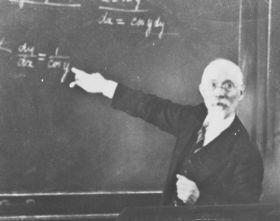

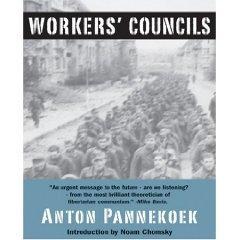
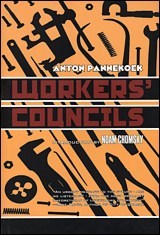

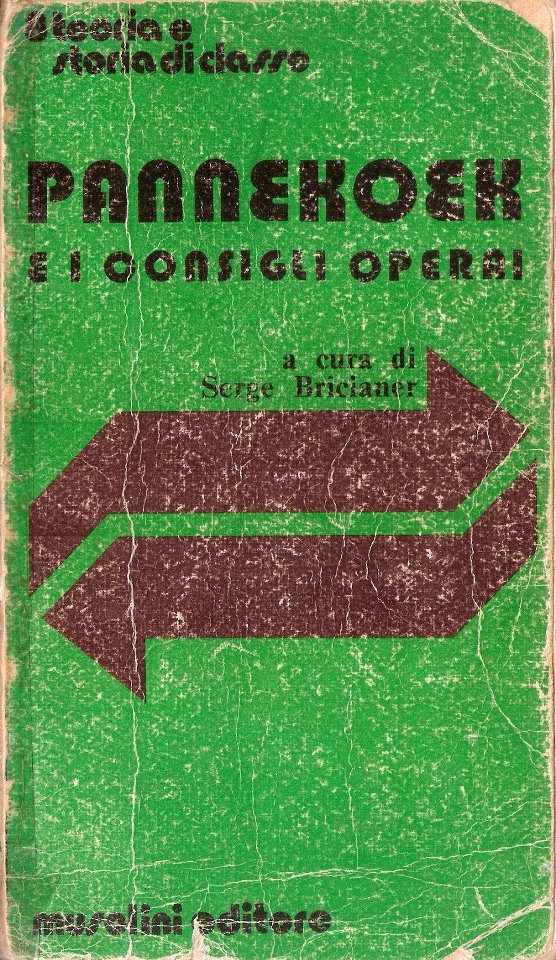
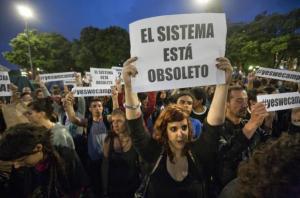
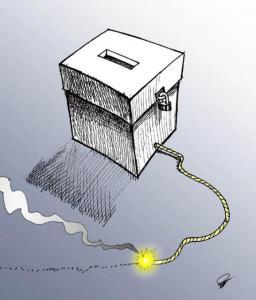
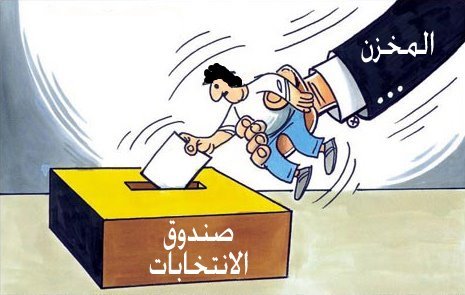
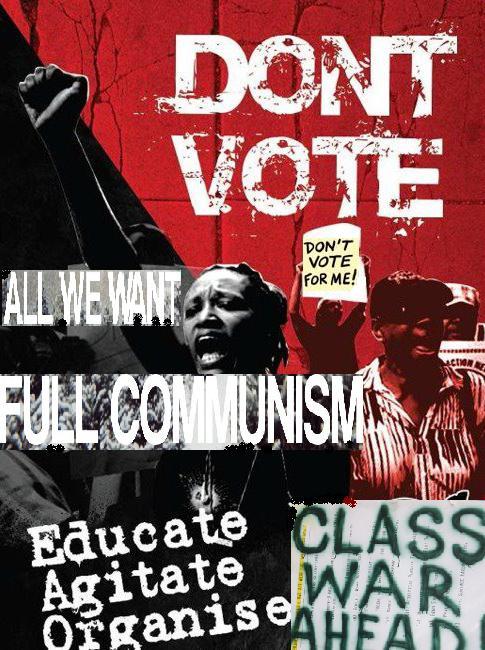
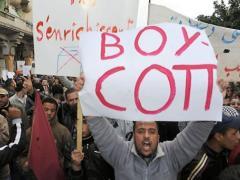
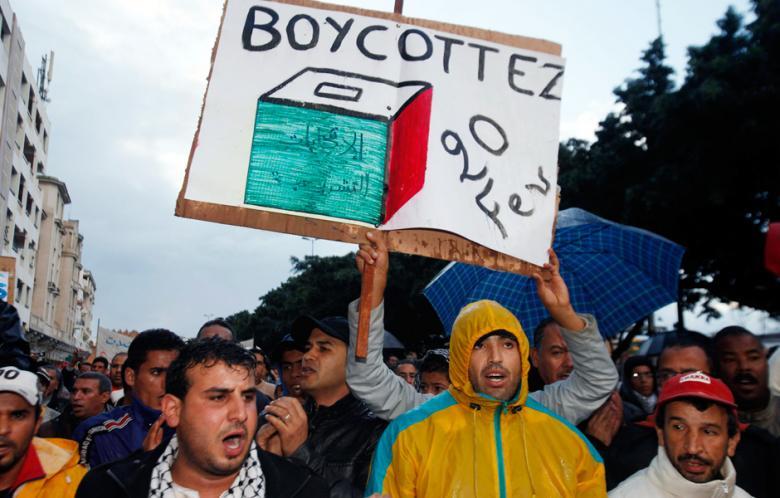

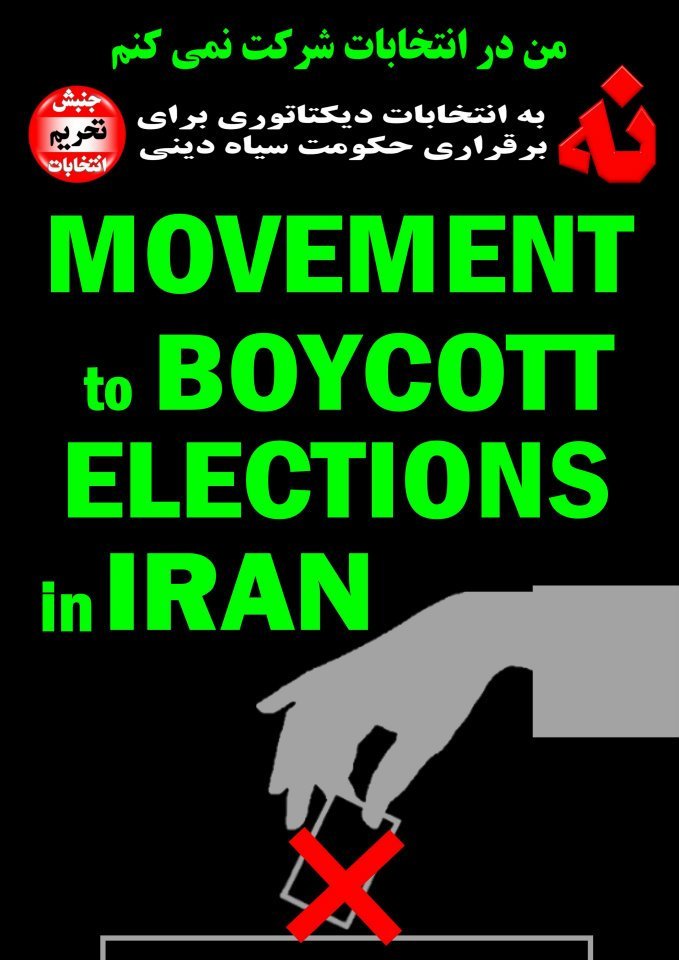





댓글 목록
관리 메뉴
본문
관리자만 볼 수 있는 댓글입니다.관리 메뉴
본문
안 톤..판네쿡의..노동자평의회를..한부..구하여..읽어보고..싶습니다..복사본이라도..구할수..없겠는지요..? 010-3920-2416관리 메뉴
본문
구해보겠습니다. 이메일 주소 알려주세요